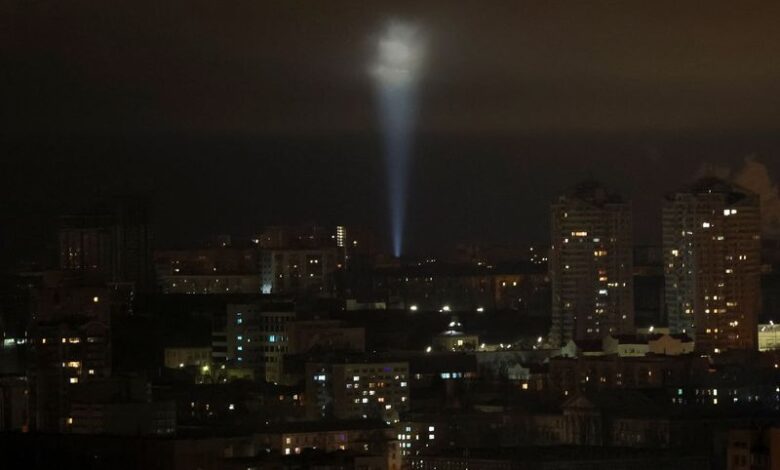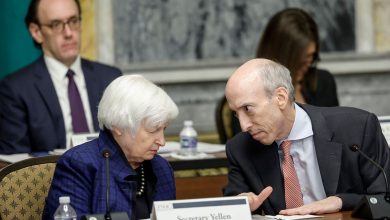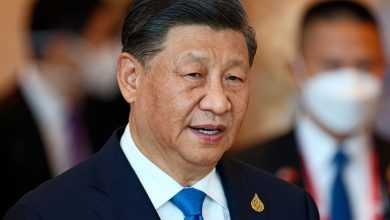Ukraine, China in focus as U.N. human rights council session opens By Reuters

[ad_1]
© Reuters. Ukrainian servicemen use a searchlight as they search for drones in the sky over the city during a Russian drone strike, amid Russia’s attack on Ukraine, in Kyiv, Ukraine February 27, 2023. REUTERS/Gleb Garanich
2/2
By Gabrielle Tétrault-Farber and Emma Farge
GENEVA (Reuters) – More than 100 heads of state and ministers will take part in the U.N. Human Rights Council session in Geneva starting on Monday, seeking to tackle issues ranging from Russia’s alleged war crimes in Ukraine to China’s treatment of its Muslim minority.
During the session, which opens on Monday and runs until April 4, many states will seek to extend the mandate of a U.N investigation body set up to probe atrocities in Ukraine.
Kyiv, which has called for the establishment of a special tribunal to prosecute Russia’s political and military leadership over the invasion, has said the body was essential to ensure Russia is held accountable for its crimes.
“We believe that it should be both a technical extension of the mandate but also substantially strengthen the text,” Yevheniia Filipenko, Permanent Representative of Ukraine to the United Nations Office in Geneva, told reporters on Friday.
Kyiv and its allies are disgruntled by the participation of Russian Deputy Foreign Minister Sergei Ryabkov, who will address the council on Thursday.
It will be the first time a Russian official from Moscow has attended in person since the war began a year ago. Russia, which denies committing war crimes or targeting civilians in Ukraine, was suspended from the council over the invasion in April but can still take part as an observer.
Western diplomats have been publicly tight-lipped on their reaction to Ryabkov’s presence after staging a walk out of a speech by Russian Foreign Minister Sergei Lavrov at the council last year over Moscow’s invasion of Ukraine. Filipenko said Ukraine did not welcome Russia’s presence and would “act accordingly,” without giving details.
The Geneva-based U.N. human rights council is the only body made up of governments to protect human rights worldwide. It does not have legally binding powers but its debates often bring heightened scrutiny to issues and it can spur investigations that feed evidence to national and international courts.
Other high-level foreign ministers due to attend its latest session include Iran’s Hossein Amirabdollahian, Germany’s Annalena Baerbock and Congolese President Felix Tshisekedi.
Countries also will closely watch how Volker Turk, U.N. High Commissioner for Human Rights since October, refers to China after his predecessor Michelle Bachelet was accused by some rights groups of being too soft on Beijing.
A U.N. report published last year found that the detention of Uyghurs and other Muslims by China may constitute crimes against humanity. Beijing denies any abuses.
The council is not expected to pursue a China motion this time around after a Western-led bid to hold a debate on China’s treatment of its Muslim minorities failed last year. Michele Taylor, U.S. ambassador to the council, told journalists that Washington will “continue to shine a spotlight” on China and was in talks on how to do so.
[ad_2]
Source link



